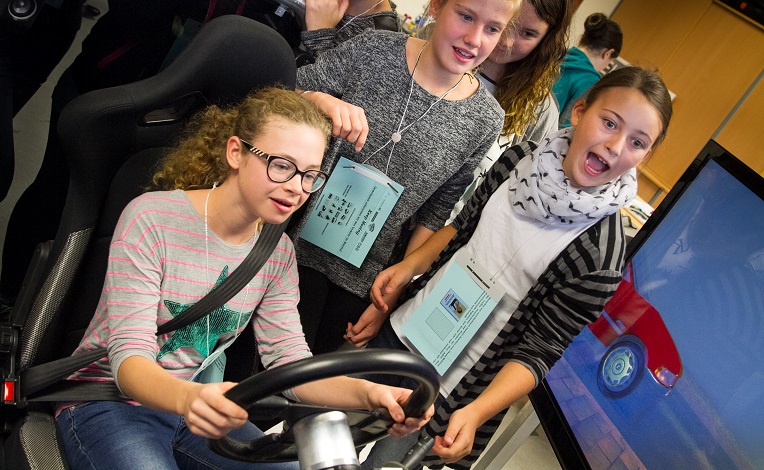ICSE presents one of ENSITE’s focus topics for classroom content and teaching methods
Andrea Frantz-Pittner
In a world shaped by natural sciences, basic scientific education is an essential prerequisite for participating in social negotiation processes and making informed decisions. Current visions of “scientific literacy” are not limited to concepts and working methods of natural sciences. They rather consider science in a social context and aim to promote “scientific citizenship”. Complex environmental problems (“socio-scientific issues”) with which children come into contact in their everyday lives offer suitable starting points for teaching activities.

Keep Moving. ©astrimage FILM

Keep Moving. ©astrimage FILM
Mobility as an interdisciplinary topic in the classroom
The ENSITE project deals with the topic of “mobility” in terms of content and teaching methods. It offers children and young people individual points of reference to a socially relevant problem area that links their own life experiences with scientific concepts. The mobility situation of a region affects not only technical but also ecological, social, political and ethical aspects. In decision-making processes, we must weigh scientific and technical arguments against questions of distributive justice (“mobility poverty”), personal value hierarchy, financial viability, logistics, etc.
Whether it is a question of soil sealing by traffic areas, the pollutant emissions of drive systems, the survey of passenger satisfaction in public transport, traffic safety or noise pollution on through roads: Teachers find many points of contact with curricular contents in mathematics and natural science subjects in the broad spectrum of mobility-related questions.
Promoting critical thinking and creativity
In addition, the examination of different perspectives, the targeted search for information, its evaluation and the joint struggle for solutions, support critical thinking, creativity, cooperation and communication skills. All these are competences that our society urgently needs to meet the challenges of the 21st century.
